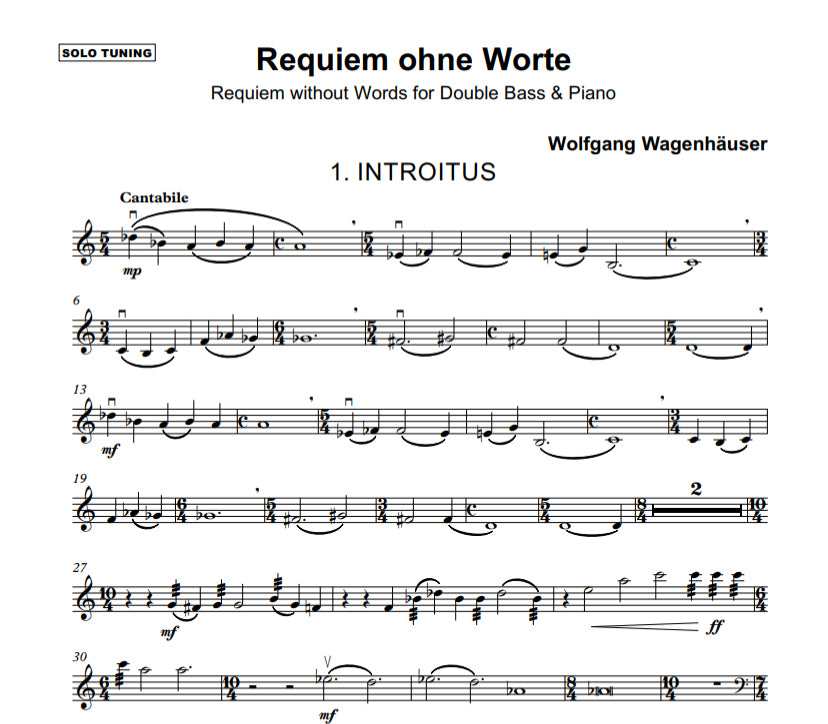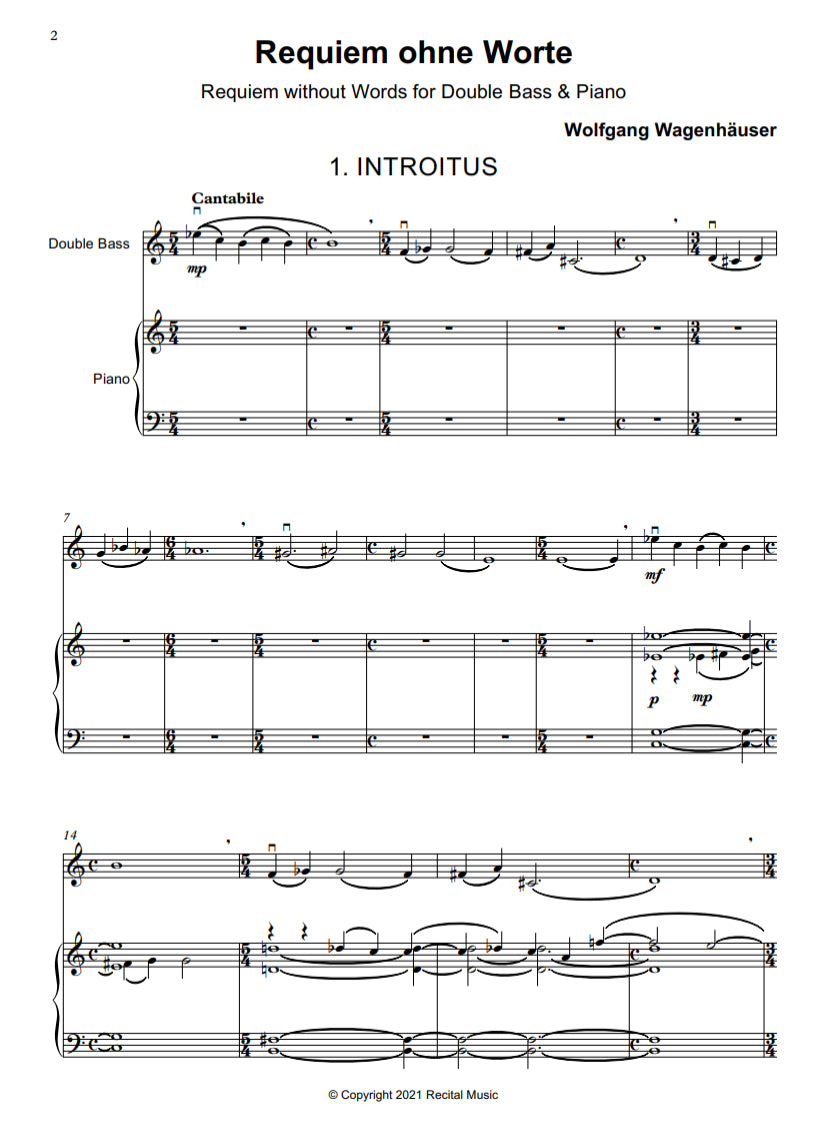David Heyes
Wolfgang Wagenhäuser: Requiem ohne Worte (Requiem without Words) for double bass & piano
Wolfgang Wagenhäuser: Requiem ohne Worte (Requiem without Words) for double bass & piano
Couldn't load pickup availability
About the Composition
Requiem ohne Worte (Requiem without words) for double bass and piano is an impressive, inventive, and challenging work for the advanced bassist and is only available in solo tuning. Written in a confident but accessible modern idiom, with many opportunities for the bassist to display both technical and musical excellence, this is a major new addition to the serious concert repertoire.
Wolfgang Wagenhäuser writes: “Requiem ohne Worte (Requiem without words) was composed in 1997 in memory of my former student Tobias Heymann, who fell, alone, in the Alps and was covered by a blizzard lasting several days."
When my friend, the double bassist Ovidiu Badila, asked me about writing a work for him, the associated moods kept coming into my head and soul. The line-up of double bass and piano is as if made for the abysmal, the desolate, the craggy - but also sadness, comfort and ... jazz; and Tobias had studied and loved this style of music too. The speechlessness corresponds most directly to the bewilderment. Music alone seeks to grasp this incomprehensibility.
From the name Tobias Heymann I derived a twelve-tone row that carries the entire work. In the execution I mix the different levels of time and sound, let them rotate and breathe. I steer the overall structure through the mixing ratio of the different techniques - whereby many a tonal passage is based on a pure twelve-tone structure.
Ovidiu loved the work very much, even though he would have preferred a funny piece from me, but he immersed himself in the Requiem with great commitment. We performed some of it live at a musical summer festival in East Friesland. It deeply moved the audience. In one recording session we recorded everything except the Dies Irae, which is by far the most difficult movement and we wanted to prepare it well. It then took a relatively long time and I had a strange feeling whether we would be able to complete it. But then one day we found the time and the requiem is completely recorded.
Tragically, it was also to be the swan song for Ovidiu, who died unexpectedly shortly afterward. All too soon this wonderful and diverse, deep and virtuoso musician left us. May he rest in peace!”
About the Composer
Wolfgang Wagenhäuser - pianist, organist, composer - was born in Frankfurt am Main (Germany) in 1953. At his insistence the four-year-old Wolfgang asked his father to teach him piano and theory, and his first concert appearance was at the age of five. He was organist in his hometown from the age of nine and, as a 13-year- old gave concerts with his own improvisations. He won various first prizes in youth competitions, followed by concert invitations in Poland, Hungary, and Austria.
Wolfgang Wagenhäuser studied with Wendelin Rückel and Norbert Brecht and subsequently studied piano with Gisela Sott and Leonard Hokanson at the Frankfurt University of Music, at the same time studying composition with Kurt Hessenberg and Hans - Dieter Resch. In 1974 he was the winner of the German University Competition and in 1980 and 1981 won first prize at international competitions in Florence and Paris. Over the years he has received special prizes for his Mozart, Beethoven and Schubert interpretations.
His concerts have taken him throughout Europe from Russia to Spain and from Sweden to Italy, and has also played in various tours to Morocco, Tunisia, Namibia and South Africa, Japan, Korea and China. On many tours he played his own compositions. He has made numerous radio and television appearances, alongside live recordings, and, in recent years, streaming concerts have been a fascination.
Wolfgang Wagenhäuser has had major world premieres and successful performances of his works by orchestras and chamber ensembles. Since 1987 he has been a Professor of piano at the State University of Music in Trossingen and from 2015 he has also held a Visiting Professorship in Shanghai at Tongji University, where he is also one of the senior Rectors of the Interdisciplinary Sound Research Centre.







